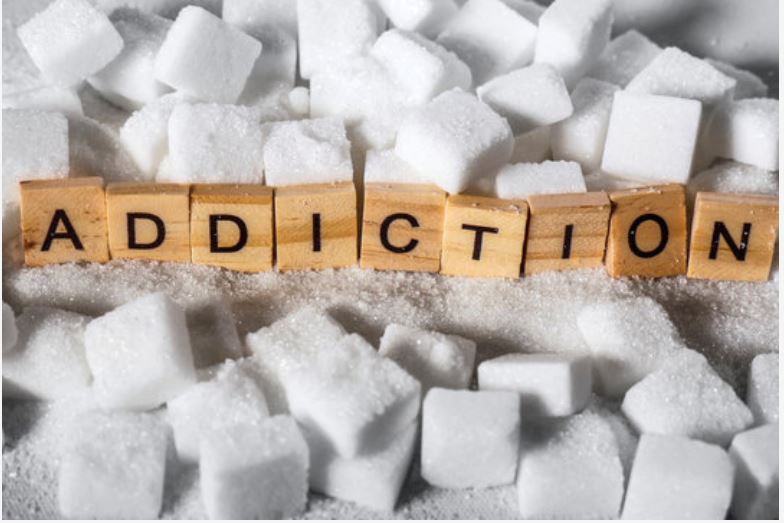No products in the cart.
The Effects of Sugar on Addiction and Recovery

Dr. Teralyn Sell, Psychotherapist, and Brain Health Expert highlight the importance of knowing sugar’s effects on those battling with addiction and sobriety. She says, “Sugar has a profound impact on those struggling with addiction and with sobriety. Blood sugar dysregulation has been looked at as a top predictor of relapse. Addictions cause intense sugar cravings. Because addictions cause an overproduction of dopamine, when the addictive substance is taken away, the pleasure center continues to call for more stimulation. Sugar becomes the substitute for the addiction. This signals the brain to want more.”(Image Credit: https://www.dreamstime.com)
Dr. Sell highlights the 5 primary ways that sugar impacts the brain:
- Sugar Causes Reactive Hypoglycemia – Blood sugar dysregulation.
- Sugar Impacts Sleep Negatively.
- Sugar has been implicated in mental health problems.
- Sugar triggers Dopamine.
- Sugar is inflammatory.
So, how can individuals struggling with addiction and sobriety work to combat the impact of sugar on recovery and mental health?
“Make sure that you focus on blood sugar regulation throughout the day. Keep sugar intake around the recommended daily allowance of about 6 teaspoons. Of great importance is to eat small amounts of protein throughout the day (about every 3-4 hours). Don’t skip meals, ever, and start eating protein within an hour of waking. Also, many people in recovery struggle with sleep issues so it is important to not eat a sugary treat before bed as this will disrupt your sleep when blood sugar dips and adrenaline kicks in. That’s when you wake up at 2 am with an active brain,” says Dr. Sell.
So, how can loved ones of those struggling with addiction and sobriety help promote a healthy and happy brain this Halloween holiday?
“To support a happy, healthy brain this Halloween and to support your loved one, make sure that alcohol is not present at your Halloween party or private celebration. Don’t tempt fate by having your loved one exert ‘willpower’ in early recovery. Also, have some healthy snacks available for munching on like cheese and sausage, veggies and fruits with nut butter or you can use sugar alternatives. Make sure that there are games to play to take the spotlight off eating and put it on having sober fun and socializing. All the same rules of sugar apply to loved ones as well. Often the loved one is so focused on their person in recovery that they forget to eat and are in a state of reactive hypoglycemia themselves.”










Leave a Reply